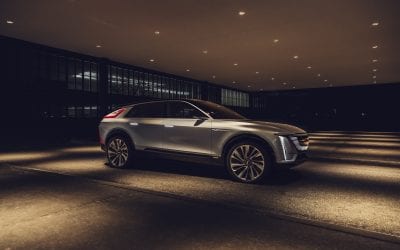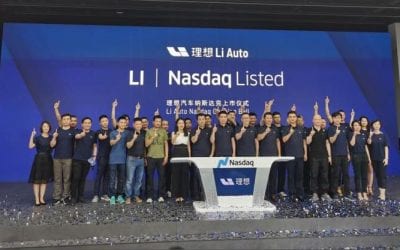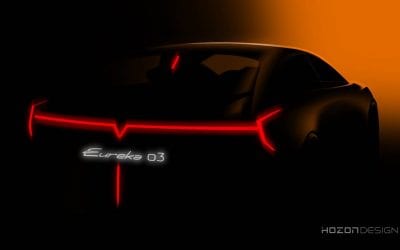
BAIC Electric Vehicles
|
Beijing Automotive Industry Holding Co. Ltd (BAIC) is 60% owned by the Chinese Government. BAIC spun its electric vehicle business into a separate unit, Beijing Electric Vehicle Company (BJEV). The company raised $460mln in an IPO for its Electric Vehicle unit, drawing investors such as LE Holdings, the Chinese company with ties to Faraday Future and LeAuto. The BJEV factory is situated in Caiyu, Daxing, Beijing. The vehicle bodies are welded in Zhuzhou Hunan province. BJEV has launched its new range of EV’s, called Arcfox. BJEV unveiled its first concept vehicles for the Arcfox sub-brand in 2016 which comprised of the tiny open-top SUV, the Arcfox-1 and the performance model the Arcfox-7 which is based on the Formula E platform of the NextEV Racing team.
The German company, Daimler AG, acquired a 12% shareholding in BAIC during November 2013. BAIC is the fourth largest vehicle manufacturer in China and produces some of the best-selling electric vehicles in the country, the E150/160/200 series. The Daimler influence is clear in the design of the new BAIC EU260 model, which looks similar to the Mercedes C series.
BAIC BJEV was one of the first automakers to qualify for an electric vehicle production certificate from the Chinese Government in 2016. |
BAIC Electric Car Strategy in the news
Week 32 2019 BAIC merge Senova and New Energy brand's
On May 28 this year, Beijing Auto announced the termination of the Senova brand. The Senova brand is merged with BAIC New Energy but still sell combustion models next to electric models such as the new EU7. The BAIC Senova Zhida X3 introduced at the Shanghai Auto Show in April this year went on pre-sale recently as the Beijing Zhida X3, being the first car from the brand.

Week 13 2019 BAIC and Magna enters into EV production JV
BAIC this week entered into a joint venture with Canadian auto parts company Magna to produce high-end pure electric passenger vehicles. The JV shareholders are both subsidiaries of the parties as shares are held through BAIC New Energy and Magna Ireland. The new JV aims to produce 150,000 vehicles per annum at a budgeted investment of 2 billion yuan. The two parties will jointly develop the high-end intelligent pure electric vehicle platform, and provide new energy vehicle engineering services. The joint venture company established by the two parties plans to use the existing plant of BAIC Group in Zhenjiang, Jiangsu Province, and the first mass-production model is scheduled to be put into operation in 2020.

Week 30 2018 BAIC to stop production of ICE vehicles in Beijing
I previously reported that BAIC would stop selling combustion vehicles by 2025 through a phased out approach starting in 2020 in Beijing. The state-owned auto manufacturer announced this week that it would stop producing Internal Combustion Vehicles (ICE) at its Beijing plants from the end of July 2018 and focus on EV manufacturing. The move is part of a major restructuring of the company’s operations which involve its partnership with Mercedes. Previously the two companies entered into an agreement to expand and upgrade the JV’s EV strategy with an injection of RMB 11.939 billion (Week 27/2017) in Beijing Benz Automotive Co., Ltd. BAIC Beijing will manufacture all Mercedes pure electric EVs (EQ brand). The first phase of the plant will be able to produce 150,000 units per annum from the end of 2019, in time for the release of the EQC. In June BAIC and Magna entered into an agreement to create the equivalent of an EV “Foxconn,” producing EVs for companies such as BJEV, Didi, Singulato, and other EV start-ups, to this end BAIC will upgrade its 300,000 unit Zhaoquanying Town, Shunyi District, Beijing plant. BAIC will also list its BAIC BJEV EV unit which manufactures the ARCFOX EV brand in Q3 of this year.
In related news, BAIC opened its first light-vehicle assembly plant in Africa this week. In Week 18/2018 BAIC announced that the plant would be for the assembly of EVs. The press release this week made no reference to EVs. At the time I was skeptical why BAIC would assemble EVs in a country with no EV plans or infrastructure, in fact, EVs are penalized with an extra wealth levy in South Africa.
Week 26 2018 AIC and Brilliance EV partnership formed
It has long been expected that the cost associated with the rush to
produce electric cars will cause a shake-up in the Chinese Auto sector,
where loss-making brands were propped up by cheap loans. In the past
year state-owned companies FAW, Changan, and Dongfeng agreed to share technologies and development cost. This week saw BAIC and Brilliance Auto, BMW‘s
local partner, signing a strategic co-operation agreement. The two
companies will cooperate promoting and development of new energy
vehicles for ride-sharing, ride-hailing, electric passenger, commercial
and official vehicles in the north-east of China.
Week 18 2018 BAIC to start assembly in Africa
BAIC announced at the 2018 Auto China in Beijing that it will start assembling EVs in South Africa, following BYD which is constructing an EV assembly plant in Morrocco. BAIC was the top-selling EV manufacturer (pure EVs) globally in 2017, beating Tesla and Nissan.
Most of BAIC’s sales came from the popular BAIC EC180. BAIC did not expand on its plans on how it will deal with the lack of charging infrastructure in the Southern African country. The backward thinking South African government had an opportunity to back one of the first EV manufacturers, the local Optimal Energy Juole, but decided against supporting the company partly because the management was white. Currently, there is only a hand full of EV charging stations in the two of the major centers with Nissan and BMW selling a few of the older generation Nissan Leaf and BMW i3’s. The country is also yet to decide on a charging standard as the two car’s are using two different standards. Nissan also called on the South African government last week to do more to catch up with the rest of the world on its plans for electric cars or risk being left behind.
BAIC chairman Xu Heyi indicated that it will start setting-up a plant with a capacity of 100,000 vehicles at the end June. He did not indicate what level of the assembly will be done locally.

Week 7 2018 Daimler gets equity in BAIC
Chinese Government gave its approval for the acquisition of a 4.79% shareholding by Daimler
AG in Jinggangshan New Energy Investment Management Co, the top
selling pure electric vehicle producer of 2017. Jinggangshan New Energy
Investment Management Co, BJEV for short, is owned by Daimler’s local
partner BAIC which holds 37.27% alongside the Beijing municipal
investment fund and Xinshixinye Investment Management Co.
Week 4 2018 BAIC goes public with EV company
BAIC, China’s
biggest EV manufacturer in 2017, will become the country’s first listed
EV maker as it reverses its BEJV unit into its listed affiliate Chengdu
Qian Feng Electronics Co. on the Shanghai Stock Exchange through an
asset swap valuing the new company at $4.5 billion (28.8 billion yuan).
BJEV raised 14 billion in two tranches of 3 billion yuan in 2016 and 11
billion yuan in 2017.
Week 50 2017 BAIC to stop building combustion cars
State-owned BAIC Motor Group announced this week that it would stop with the sale of fossil fuel powered vehicles (ICE) by 2025, joining Changan
which made a similar announcement in October this year. The
announcement was made by BAIC’s chairman, Xu Heyi, at the opening of the
company’s EV tech center. Currently, BAIC holds the record for the sale
of the most EVs of a particular unit in a month for three months
running. The BAIC EC180 city car sold over 15,000 units in November 2017, breaking its previous two records
of 9,143 and 11,315 in September and October of this year. The Chinese
company also announced a further investment of 100 billion yuan (ca $15
billion) to support its new energy vehicle strategy. The newly announced
strategy will start with the halt of sales of ICE vehicles in Beijing
in 2020. BAIC has detached its EV strategy from fossil-based vehicles by
not producing any hybrid models. BAIC and Daimler announced earlier this year that the partnership would expand their EV partnership in China.
Week 27 2017 BAIC and Daimler expand EV partnership
Daimler and Chinese BAIC Motors this week agreed to increase the investment in the Sino-German Joint Venture, Beijing Benz Automotive Co (BBAC), to manufacture electric vehicles. The partners agreed to a further investment of 5 billion yuan (655 million euros / $735 million) at a signing of the heads of agreement in Berlin in the presence of German Chancellor Dr. Angela Merkel and Chinese President Xi Jinping. The investment by the German automaker is a further commitment to electric vehicles as it implements the aggressive electric vehicle strategy formulated in 2016. BBAC is the localization of the Mercedes-Benz brand in terms of the Chinese Government’s efforts to strengthen its vehicle sector and will see its first electric vehicle rolling off the production line in 2020.
In June 2017 both partners agreed to strengthen their strategic collaboration through investments for New Energy Vehicles (NEVs) in China. As part of the investment agreement, Daimler announced its intention to acquire a minority share in Beijing Electric Vehicle Co., Ltd. (BJEV), a subsidiary of the BAIC Group, with the purpose of strengthening strategic collaboration with BAIC in the NEV sector.
The investment will be used to extend the BBAC plant in Beijing, established in 2005 and already Daimler’s largest Mercedes-Benz passenger car production hub, to become a BEV production hub in China. The establishment of a BEV production hub will commence with the building of an eBattery factory, which would be Daimler’s first foreign location of its global battery production network. Daimler plans to invest one of the ten billion euro earmarked for its electric vehicle strategy in the global battery production network for Mercedes-Benz vehicles. The network already includes the site in Kamenz, Saxony, built in 2010, where a second state of the art battery factory is being built with an investment of around 500 million euros. Mercedes-Benz will source the cells for its battery plant in Beijing from Chinese suppliers.

Top 5 EV News Week 32 2020
Top 5 EV News Week 32 2020 | Cadillac Lyriq unveiled. Yet another Chinese EV startup IPO. Three new EV models launched this week.
Top 5 EV News Week 31 2020
Top 5 EV News Week 31 2020 | Successful IPO for CHJ Auto, Kandi finally enters the USA, Mitsubishi pays the cost for failing EV strategy.
Top 5 EV News Week 30 2020
Top 5 EV News Week 30 2020 | Chengdu Auto Show, Hozon Neta IPO, VW invest in China, eVito Tourer for sale

































